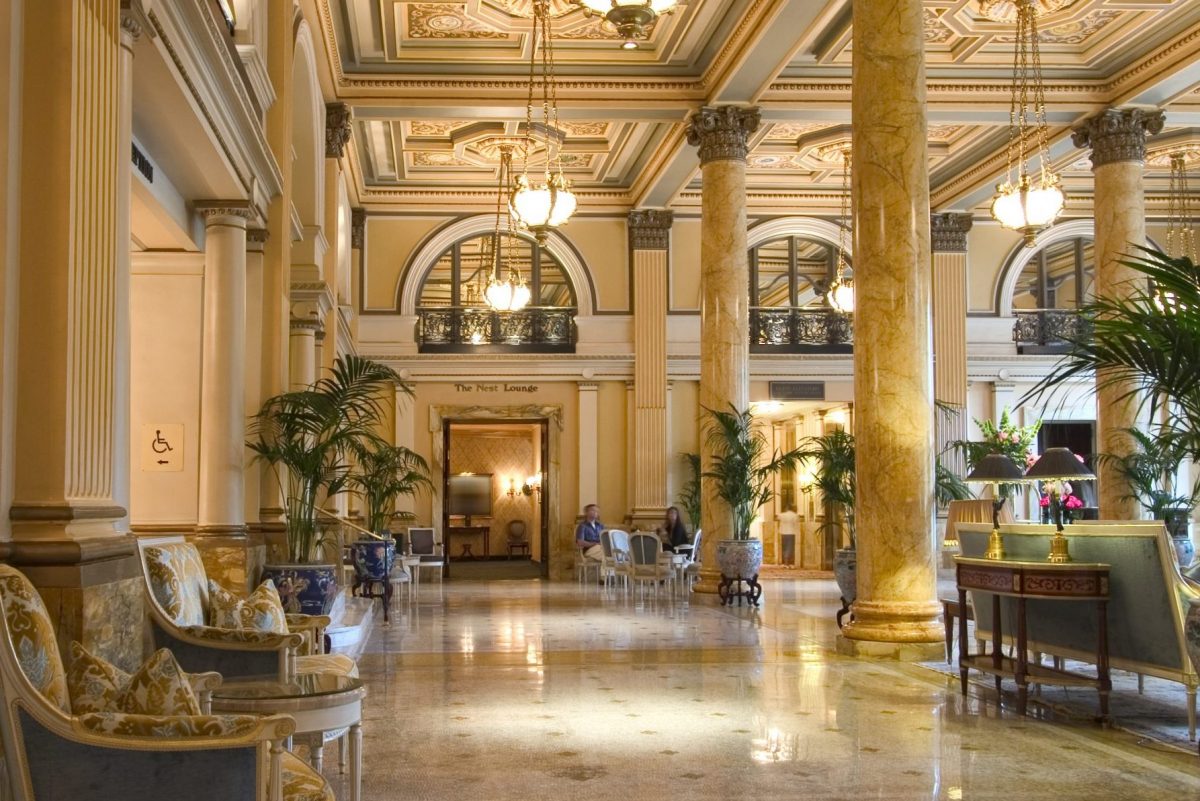Skift Take
You might not have noticed, but luxury hospitality is in the middle of a major reboot. Old, storied reputations mean nothing anymore if today's service is lost. The market is a blank slate where all relationships, preferences, and loyalty need to be re-examined and rebuilt by luxury travelers. Brands have to re-think their value propositions.

On Experience
Colin Nagy, a marketing strategist, writes this opinion column for Skift on hospitality and business travel. On Experience dissects customer-centric experiences and innovation across the luxury sector, hotels, aviation, and beyond. He also covers the convergence of conservation and hospitality.
You can read all of his writing here.
A ticking time bomb is lurking in the heart of luxury hospitality. It hasn’t been super acknowledged in the maelstrom of financial analysis, or endless speculation about recoveries. Also, in many ways, it has been covered up by the sky-high prices that properties have been commanding as people return to the road and to vacation.
As I have been staying at and surveying countless properties along the spectrum, I’ve realized that there’s a giant reset happening. Brands that have had storied reputations, an air of prestige, and great reviews are simply shells of their former selves. While they occupy prime real estate and still show up in the right neighborhoods and arrondissements, they have changed. Put simply, a lot of properties are not living up to the mystique and equity they have built over time.
Why is this? There are several reasons. A lot of hospitality lifers and people dedicated to the craft of hospitality simply didn’t return after being shown the door in the pandemic. They were left high and dry. The backbone of these properties, alongside all of the beautiful linens and floral arrangements, are the people. And many of the best aren’t coming back. I’ve witnessed this all too often in the so-called recovery: staying at a property with an iconic name that I’ve had a relationship with, only to be drastically disappointed (despite paying the usual rate).
This is far from scientific but it is the result of hundreds of nights in a variety of hotels over the pandemic. For a time, this was forgivable: I’m not going to nit-pick brands that didn’t live up to their standards. Plus, as I recounted in my price gouging piece, most guests were just happy to be out of their house, with a change of scenery, and hopefully a little TLC, good water pressure, and a white, fluffy robe.
And while we all know there are countless briefs out to ad agencies seeking to stimulate hiring and the allure of hospitality careers, and a flood of Linkedin postings, some very deep systemic damage has been done.
What does this mean? First, it means just like in Men in Black, when memories are erased with a little flash of light in the eyes, it means that countless years of brand equity, reputation, and reviews are erased the same way. For many people, today is a blank slate where all relationships, preferences, and loyalty in luxury need to be re-examined and rebuilt by luxury travelers.
This does a few things: one, it makes the case for luxury travel advisors again. Though sometimes I feel like all they do is hang out together and eat free shrimp cocktails on comp nights at pricey properties, there are the select few that continue to kick the tires with rigor and know what is exactly good right now. The value of boots on the ground due diligence from advisors for their clients is essential. Michael Holtz, the founder of SmartFlyer, does this well. The guy is tireless. He’s seeing everything, knowing what is worth the money and what isn’t, and talking to the market. And while this seems like quite a boondoggle, his approach actually provides priceless intelligence for high-flying customers who are re-evaluating where they spend their money.
On the brand side, it also means that a lot of new, valuable customers are up for grabs. On the marketing side, luxury properties need to move beyond these broad, boring platitudes and really drill down into hyper unique value propositions. More so than ever, properties and brands that have a heartbeat, have a purpose and have a bit more soul have the ability to win share from some of the big, established brands who have lost their way and continue to peddle boring 40,000-foot narratives about “re-connection” and other empty, lofty promises.
Right now, it is time for challengers to make a play to convert customers aggressively. This is obviously done through the courting of the travel trade and marketing spend, but it also comes from generating old-fashioned word of mouth and hustle. New ideas and new approaches today create a disproportionate amount of leverage.
Luxury is completely being rebooted. Priorities have been realigned (as we have all heard ad nauseam). But the sooner that luxury hospitality brands consider they need to start as if it is day one, and not coast on old, storied reputations or the ghosts of great reviews past, the better they will be positioned to win the future.
Have a confidential tip for Skift? Get in touch
Tags: future of lodging, hospitality, hotels, loyalty, luxury, On Experience
